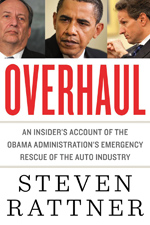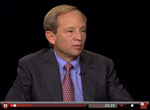Originally published in the Financial Times
Amid all the hoopla surrounding the choice of Paul Ryan as the Republican candidate for vice president, and Senate candidate Todd Akin, let us not forget the still significant matter of Mitt Romney’s tax returns and what they say about the sorry state of US tax policy.
On that front, Mr. Romney remains unrelenting in his refusal to release more than two years of filings, causing political opponents and cynics to continue to mutter darkly about what awfulness they might contain.
Should Mr. Romney eventually yield, I believe that at a minimum, we will see nauseatingly more of the same: an immensely wealthy businessman who stretched every crack in the tax code to the breaking point and possibly beyond.
Like Mr. Romney, I have labored in the private equity vineyards and am familiar with many of the loopholes available to practitioners of that art. But Mr Romney unearthed crevices that I never knew existed and worked the tax code to greater advantage than I’ve ever heard of a private equity executive doing.
Not all of Mr. Romney’s manipulation was arcane; his headline tax rate of 14 per cent results largely from the dramatic cuts in taxes on capital gains and dividends engineered by former president George W. Bush.
Since becoming known, that low rate has been a source of irritation not only to less fortunate Americans (famously, Warren Buffett’s secretary pays more) but often also to highly paid wage slaves whose salaries and bonuses are fully taxed at a top rate of 35 per cent.
And that’s far from the only way that Mr. Romney has kept his payments to Washington so low for someone with $20.9m of income last year.
For one thing, what is considered capital gains for Mr. Romney and taxed at 15 per cent – the well-known “carried interest” received by private equity and hedge fund managers –would be considered wages in a more rational world and taxed at 35 per cent.
But Mr. Romney has even elasticized this provision. He left the private equity business in 1999 and yet continues to claim the 15 per cent rate, at best a grey area under Internal Revenue Service rules.
And that’s just the beginning. Like most Americans, Mr. Romney has an individual retirement account (known popularly as an IRA or a 401k). Unlike most Americans, Mr. Romney’s IRA contains as much as $100m, notwithstanding the relatively low ($30,000 at present) limit on annual contributions to these accounts.
We don’t know how Mr. Romney shoveled so much into his IRA; my guess is by “selling” Bain investments at substantial discounts or carried interest at nominal valuations.
What we do know is that he is deferring paying taxes on income earned by these funds, an interest free loan from the US government worth millions of dollars a year.
Then there’s the matter of inheritance taxes. Notwithstanding strict limits on tax free gifts to heirs, Mr. Romney has managed to put aside as much as $100m for his descendants, probably using the same mechanisms as he did with his retirement plans, thereby potentially postponing death duties of roughly 35 per cent of the value of the trusts for multiple generations.
That’s not all. By structuring these vehicles as “grantor trusts,” taxes on the income from the investments are paid by Mr. Romney rather than by the trusts, which allows the assets of the trusts to accumulate faster, thereby obviating still more inheritance taxes.
Much has been made of Mr. Romney’s offshore accounts, including a now-closed Swiss bank account. Tempted as I am to pile on Mr. Romney for those, unless he engaged in patently illegal tax evasion, which strikes me as highly unlikely, I mostly can’t figure out how they have helped him avoid US taxes.
With one exception: Mr. Romney appears to have taken advantage of the ability of hedge fund managers (Bain had hedge funds as well) to defer indefinitely taxes on carried interest profits attributable to investors in their offshore entities. While now closed for new deferrals, Mr. Romney is (once again) receiving an interest-free loan potentially worth millions each year.
Beyond the prurient interest in a rich man’s finances and the more high-minded question of Mr. Romney’s character, the presumptive Republican nominee’s successful efforts to minimize his taxes speak volumes about the Swiss cheese nature of America’s tax code.
Ironically, Candidate Romney himself has served up tax cut proposals that would only lighten further his already featherweight tax burden.
High on the agenda for the next President – whoever it might be – should be a long overdue wholesale revamping and simplification of the revenue code.


